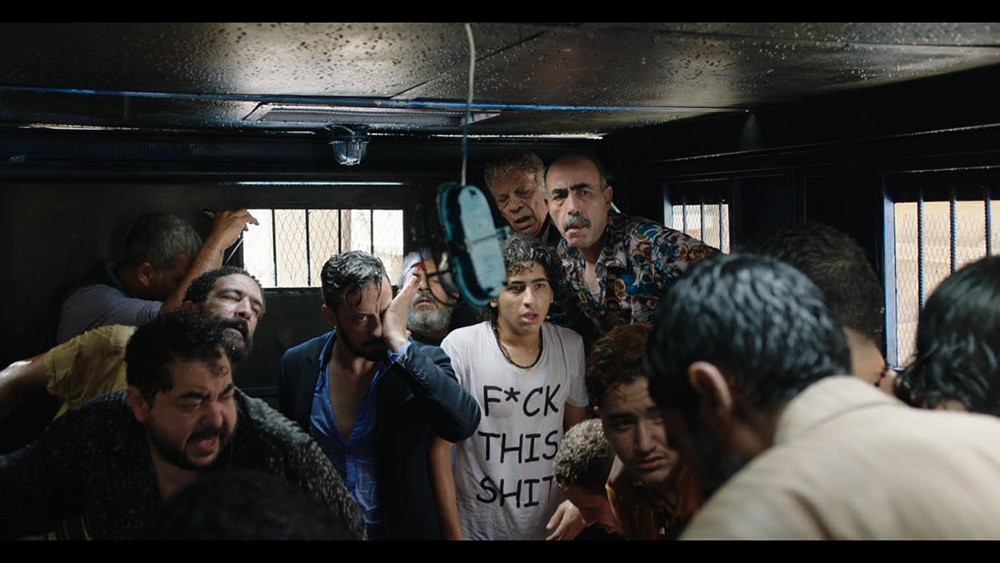Let me start off by saying that, as a fellow filmmaker, I hate this film. The story was outstanding, the characters were original and the direction was inspiring and thus my hatred for this picture. If you have not picked up on the joke yet, you are probably Egyptian – the hot-headed, humorous, happy and, well, beautiful Egyptian that makes Eshtebak the masterpiece that it is. With many quite tempting opportunities to follow the traditional style of Egyptian filmmaking or simply the easier approach, fearless director Mohamed Diab chooses to take the road less traveled and lead the film into what can only be described as a new wave of Egyptian cinema. Deciding to never exit the police van in which the whole film is shot may seem like a simple task, but do not be fooled, it is not as easy as it looks. The effects of this decision are not only rooted in the film’s visual presentation but also in its plot, resulting in a sort of restraint from telling more parts of the story on Diab’s part. This is important to note as an area in which many…
Mohamed Diab’s Eshtebak a Breath of Fresh Air for Egypt’s Film Industry
August 3, 2016



